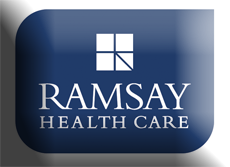
Nasal Allergy
Nasal allergy can be perennial (all-year-around) or seasonal (hay fever). Nasal allergy is a condition that affects up to one-in-five of the population at some point in their life. The reaction is like a bee sting with histamine and other molecules being released by the nasal lining. Nasal allergy is called allergic rhinitis.
Symptoms of allergic rhinitis include:
- Sneezing
- Runny nose
- Itchy eyes
- Nasal block
- Congestion
- Dripping down the back of the throat
- Loss of sense of smell
- Food tasting bland
- Sleep disturbance
Perennial allergic rhinitis
Perennial symptoms are caused when a patient has an allergic reaction to house dust mite, internal and external moulds and animal dander/saliva. Other triggers such as foodstuffs are less common.
Seasonal allergic rhinitis
Plants produce pollen from Spring to late Autumn. The symptoms of hay fever are caused when a person has an allergic reaction to pollen. Pollen is a fine powder released by plants as part of their reproductive cycle. The common pollens, to which patients react in the UK, are myriad and include Timothy grass, London Plane, Silver Birch and Mugwort to name just a few. Broadly-speaking the major plant pollenation periods overlap:- Spring: Tree pollens
- Late Spring/Early Autumn: Grass pollens
- Early Spring/Late Autmn: Weed pollen
If a patient has multiple allergies, seasonal allergic rhinitis can feel perennial!
Allergic symptoms vary with time
Many patients find that their symptoms improve as they get older. Around half of patients report some improvement in symptoms after several years. In around 10%-20% of patients symptoms go away completely.Treatment
There is currently no cure for allergic rhinitis but most people are able to relieve symptoms with treatment, at least to a certain extent.In an ideal world, the most effective way to control allergic rhinitis would be to avoid exposure to allergens (seasonal and perennial). However, it's very difficult to avoid pollen, particularly during the Summer months. House dust mite is found wherever there are humans. There are higher concentrations in centrally-heated, double-glazed homes particularly in the bedrooms.
Treatment options for allergic rhinitis include antihistamines which can help prevent an allergic reaction from happening and corticosteroids (steroids), which help reduce levels of inflammation and swelling.
Many cases of hay fever can be controlled using over-the-counter medication available from your pharmacist. But if your symptoms are more troublesome it’s worth speaking to your GP as you may require prescription medication.
Who is affected?
Allergic rhinitis usually begins in childhood or during the teenage years, but you can develop symptoms at any age. The condition is more common in boys than in girls. In adults, men and women are equally affected. Allergic rhinitis is more likely if there is a family history of allergies, particularly asthma or eczema.










